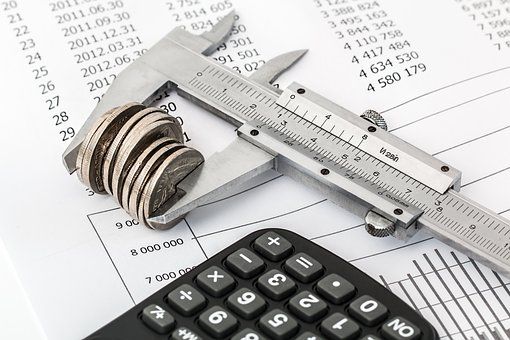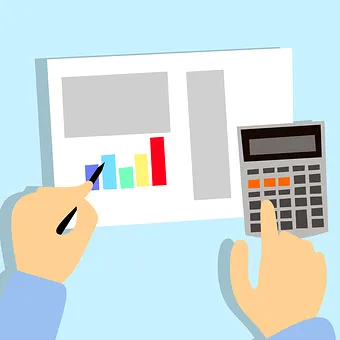Why Automated Budgeting Is More Effective Than Manual Budgeting

Budgeting typically means planning how much you will need to spend to reach targets and achieve goals from projected income during a period. It is the process of creating a plan to spend your money and the spending plan created is called a budget.
Manual Budgeting
Manual budgets are financial plans that are prepared by hand. These types of budgets were the norm for companies, small businesses, or government ministries, departments, and Agencies (MDAs). They are usually prepared by hand, according to the guidelines of the budget manual. A budget manual is a booklet or document that has methods and procedures for budgeting. It describes how budgets should be made. A budgeting manual directs the preparation of a manual budget. In time past, organizations have used manual budgeting to complete a budget cycle including planning, negotiation and approval, implementation, and review. Manual budgets are useful, at least they get the job done, but not without tedious series of procedures like estimating future revenues and expenses. Manual completion of a budget cycle typically involves a group on the Financial Planning and Analysis (FP&A) team, as well as individuals in the Financial Systems or Information Technology (IT) functions. They are tasked to prepare and modify budgets or forecasts, create and maintain relevant management reports, and perform analysis, among other budgeting activities.

Even manual budgeting for personal finance involves similar financial tasks for the individual. It was common to use a booklet to record financial history, calculate net income, track spending, outline income allocation for different purposes, etc. Where forecasting – using data history and real-time data to predict what those results will look like - and other budgeting activities need to be done regularly, manual budgeting can be overwhelming. Making a budget by hand may be simple when a procedure is followed, but maintaining it can be difficult because of the discipline it requires.
Automated Budgeting

As the name implies, automated budgeting is a system where the budget cycle is computerized. Automated budgeting involves using advanced technologies like artificial intelligence (AI), for budgeting processes; planning, implementation, approval, and review. As the majority of the world has transcended into its digital age, Companies, and individuals now have the option of automated budget management.
For individuals, the commands or procedures that affect the type of budget to be made are already embedded in an application. The individual preparing the budget simply needs to click on a set of choices to produce a budget they can work with. Automated budgeting apps have a form of the budget manual already programmed in form of digital tools. In the face of automated budgeting for organizations, budget, and forecast refreshes increase, developing member formulas, calculation, and creation of standard report templates, among other activities, are automatic.
Advantages of Automated Budgeting Over Manual Budgeting
Ease of Creating Personalized Templates
Automated processes are taking over in the finance industry. They make financial procedures easier to follow. The existence of preset features in budgeting apps allows consumers to have the edge in making their template for budgeting. It is easier to generate personal templates with automated budgeting apps since they already have a range of program options to select from. For instance, the Everyday Money app makes it possible for users to select financial goals they want or create them. These budgeting goals differ from person to person so the app makes it possible for anyone to create a budget according to their taste with the tap of a few buttons. Templates make the creation and maintenance of budgets easier.
Timeliness and Accuracy
When budgeting procedures are automated the individual can meet savings targets in good time since the system is self-regulating. Automated budgeting software has built-in workflows and version history, hence it can provide solutions or perform actions without errors and speed-up approval processes for companies. As humans, we're liable to make mistakes or reduce efforts in performing some important actions for budgeting.
For instance with personal budgeting apps, when the "autosave" feature is turned on, the app is programmed to add a certain amount to savings from available funds. The programming of an app is more likely to consistently follow a command of saving N500 at the same time every day than the average person repeating the same data entry without a daily reminder. Manual entries and tracking of a budget made with spreadsheets can take a quick downturn with just one misplaced number or bad equation. There may be difficulty locating and fixing every error accurately. Automated budgeting software makes budgeting procedures more consistent and accurate by finding variations and discrepancies quickly, saving you a lot of time.
Reduces Human Workload and Enhances Productivity
An automated budget eliminates the requirement for staff to work on a task for prolonged periods. Where software has made lots of tasks easier to accomplish, the individual just needs to oversee and monitor processes. In an organization, budget officers only need to do as little as review the budget created by automated management software against related environmental changes. Advanced reporting is easier with automated tools and employees have less workload and can spend more time analyzing. Since automatic budgeting tools reduce the length of the budgeting process, people can proactively respond to any challenges or opportunities.
Security of Digital Data Trail
As opposed to using written documents and trying to extract financial history from books or files, following the trail from digital footprints is easier. Financial data is used to study patterns and make informed decisions for effectiveness, so they always come in handy. Automated budgeting apps save financial history in cloud storage and this data can not be subjected to loss unless a consumer opts to wipe their history.
The traditional financial system has a series of financial methods and processes that have been efficient over time. But when room for improvement presents itself, it is hard to ignore. Budgeting apps now present consumers with a closer view of controlling their finances. They help improve savings habits and accountability. An effective budgeting procedure will produce repetitive accurate results, with minimal cost and convenience. This can be said about automated budgeting making it a more effective system. Automated budgeting provided by software and technology has simplified complex actions, increased service quality, and even reduced manual labor costs. The efficiency and accuracy of budgeting are heightened by automated processes. Individuals and businesses should look beyond methods of the past and embrace automated budgeting to improve agility and better decision-making in finance.



